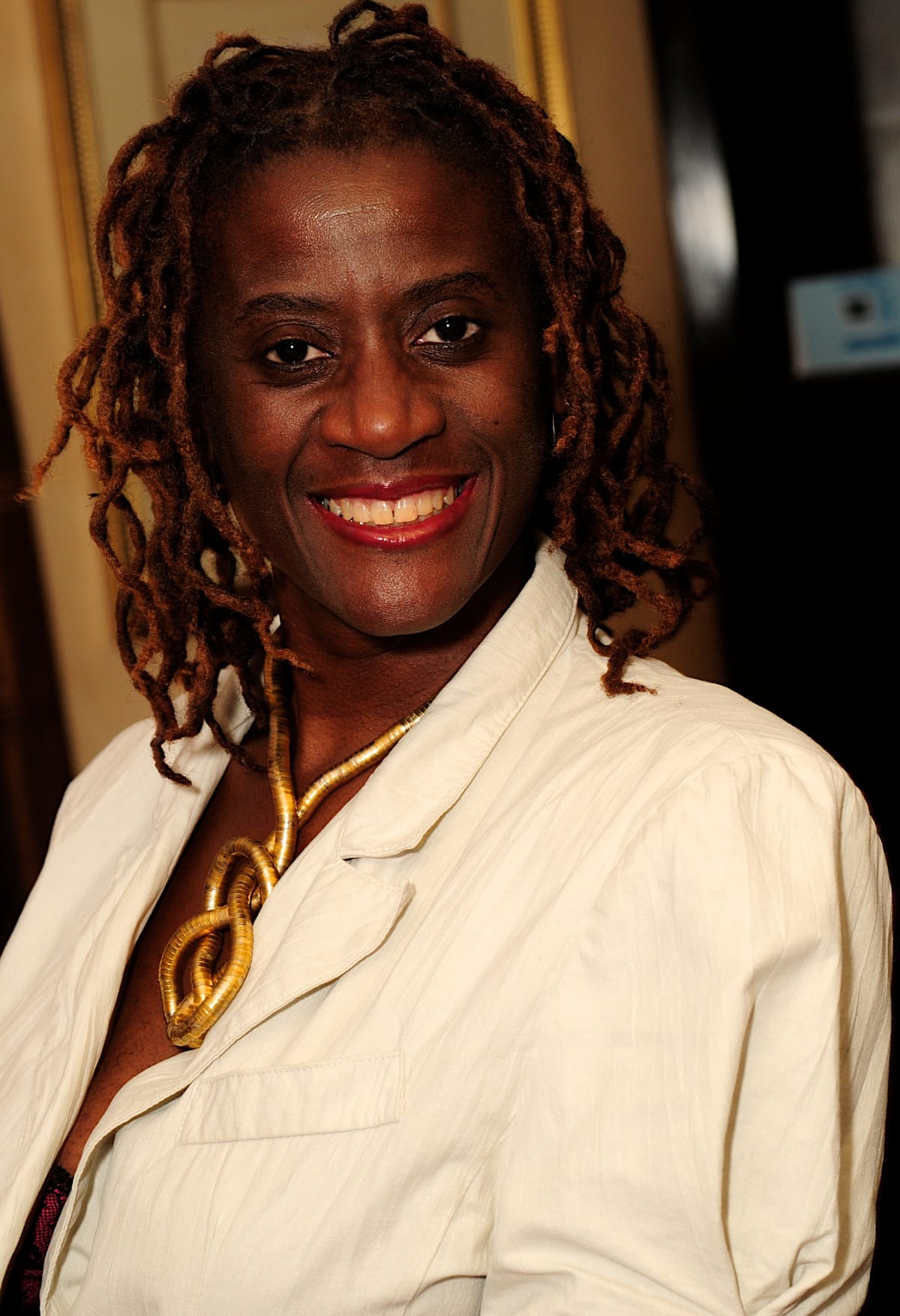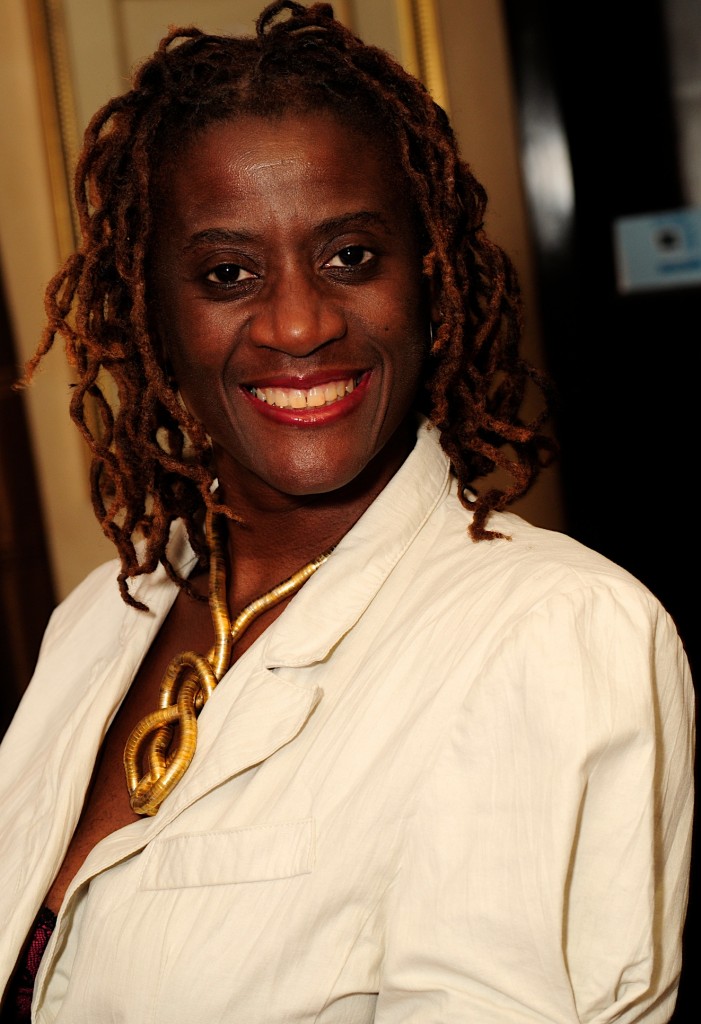An Interview with Kadija Sesay

Nikheel Gorolay, MA Intensive South Asian Studies
N: I imagine Black History Month is keeping you very busy, but I’m interested in any shifts you’ve noticed in the public discourse surrounding Black History. Do you think it’s spurring ongoing conversations on Black culture throughout the year, or becoming a narrow window of focus where there’s only precedence given to it during October?
K: Well there are two notable things. Firstly, one of the discussions that’s been going on for a long time, but has been heightened recently, in that not only Black people are saying it, is why Black history is recognised only for one month when it should be throughout. And I totally agree with that, but you use it as a basis to spur different things. Of course Black history shouldn’t be just for one month. Why should National Poetry Day be for just one day? Why should International Women’s Day just be for one day? So really we’re now looking at how to use what comes out of Black History Month to flow throughout the year – that is very key. The other thing I’ve noticed is increased discussion about Black graduates and professors. There was a survey that came out around three years ago stating that out of all the professors in the country, only fifty were Black. Now, apparently, there are 85. In three years they’ve almost doubled. So somebody was feeling guilty somewhere. And now they’ve also got equality and diversity charters in universities so that they can monitor these kinds of things. This has only been heightened in the past few years, maybe because there weren’t so many Black graduates and PhD candidates and if there were, then they were leaving the country because they weren’t getting jobs or they weren’t being recognised, so there weren’t even a sufficient number in the country to talk about it.
N: What is your opinion is on the current state of UK publishing for writers of African and Asian descent? Is the future looking bright and multicoloured or dull and monochrome?
K: It’s not really changing that much. I think what has increased in the past few years is the dominance of more women. Women are becoming more visible and more are being published.. And for Black writers – here, I’m going to include Black and Asian because politically, where I’m coming from, it’s one and the same – there’s been a slight increase. But one of the things is that major publishers can very easily say, “We’ve got a writer of colour here, we don’t need another one.” Or they can say, “We’re not making any money. We really love it but that subject has been worn thin so we can’t take anybody else on,” which is bullshit really. Have we stopped people from writing or publishing about the Holocaust? No. Has there been any decrease? No. So don’t say that about writing about slavery or Black culture. That’s why, in terms of my doctoral research, I’m going to be looking at Black publishing houses because there needs to be more of them.
N: So in terms of changing the perception and face of the industry, I guess you would see it as more of a grass-roots movement from independent publishers then? Do you have faith that big publishers will change? Despite all these schemes where you have people coming in on paid positions and working their way up, as opposed to being unpaid interns, I think unless you have an immediate shake-up and get people from diverse backgrounds at the top, you’re really not going to see a change on the scale that we need. So in that respect, do you think that’s it going to have to come from the independents?
K: Independents are more hands-on with their writers, and they tend to be more open and experimental. I went to a seminar discussion a few months back that looked at the digital industry and in a room of around fifty people, there were only two people of colour. One of the speakers said something along the lines of, “Well, in terms of the situation with Black people and diversity… yes, we all know about that argument,” and I thought you cannot stand up there and say that. Of course not everybody knows the argument. So I had to challenge him about it and what was interesting was that he was quite concerned about the fact that even though there are all these schemes, they don’t appear to be doing anything positive, which I agree with. The schemes tend to be a few years long, and used to make things look right. But at the end of the day, if you don’t have other people of the same cultural background to support the people you’re bringing into these situations, a lot of them will end up leaving or they won’t finish the whole course. It doesn’t even have to be someone from the same cultural background, but somebody who has an understanding of that person emotionally, as well as intellectually. With internships, there need to be a few interns in at the same time, not just one. And it’s all very well that Arts Council is making money available for these schemes, but they need to give it to those companies that are really going to fulfill what those interns need, instead of just giving it to a major company simply because it’s a ma-jor company and because they want to take on a Black person. That’s crap. So those kind of schemes need to be looked at again if they’re going to actually make a difference and work. At the moment they’re just decorative.
N: Yeah, like an empty gesture.
K: Yeah, they are. And then some of them like Penguin have an ongoing one, so people say aren’t they wonderful in doing that? No, they’re not. Sorry, but why? Why should they be seen as wonderful and given loads of kudos? What you need to be doing is supporting independent publishers to do that because you’ll be giving people an opportunity to work on every aspect of publishing. They don’t always get that while working with big publishers because they can be quite strict in terms of which departments you can work in. So things could be a lot better.
N: I know you’re very involved with personally mentoring and providing support to a lot of developing writers through Inscribe, which is linked to Peepal Tree Press. So could you give us a bit of information on how that scheme works?
K: Yeah, we run development schemes with Inscribe and we do it with SABLE too, because we are linked with a publishing internship programme at Leicester University. Students of any background can come and work on the magazine. And what is interesting in getting students who are White is that they learn quite a lot, not just about independent publishing, but also about transcultural publishing since that’s the model SABLE operates on. All of the publishers they come into contact with are people of colour, so they learn about the cultural and political aspects of publishing for Black writers. It’s good because you need to have people who are more aware, even if they’re not Black. So long as they are willing to learn and you’re giving them more things to learn from, that’s a good thing. SABLE usually runs virtual internships covering all aspects of the publication. With Inscribe it’s more to do with the actual writing and development of writers, and that’s been going on since 2004. At first it was just for Yorkshire and then it expanded nationally. The programme has changed a bit but we’re still coaching writers and publishing them in poetry and fiction.
N: That all sounds very positive and promising for the future of writing and publishing for people of colour. Now in regards to your personal connection with the Justice for Sheku campaign… for those who aren’t aware of it, could you please give us a bit of background?
K: Well my cousin, Sheku Bayoh, died in police custody on 3 May 2015 in Kirkcaldy near Edinburgh, and the family suspected something was wrong because they kept getting different versions of the story. They knew that the police were involved in a negative way and things have slowly been unravelling in terms of what actually took place. They’ve been trying to smear his name and the family’s name and what they’ve been saying has been proven to be untrue, so it’s an ongoing campaign just to say we want to have an inquest and prosecution of whoever killed him. If that’s a police officer, then we want them to be prosecuted. That’s going to be very difficult, but we’re going to keep working on it.
Update: Since this interview took place, it has now been revealed that one of the principal police officers on the scene allegedly has a history of violence and racism. Sheku Bayoh’s family have now called on Police Scotland to explain why an officer with this apparent background was allowed to remain on patrol.
N: Of course, there needs to be some resistance on that. So SABLE has relaunched this week. Is there a new direction you’re seeking to take it in? How is it breaking from the old?
K: Well instead of just a literary magazine, it’s now a magazine for creatives, so we are definitely having more visual art in there, amongst other things. The design is also completely different and it’s looking great. We are going to have a limited edition print issue, as well as an online issue, which will consist of a free teaser, and then a full digital issue that won’t be free. So there are lots of new things happening. Don’t ask me how I’m going to implement them all – I’m doing a doctorate. But they will happen, because they have to happen in light of the way things are going.
N: Definitely, and I like the fact that you’re broadening the scope beyond literature because there’s plenty more material that can and should go in there.
K: Yes, that’s why I have to bring in more editors because they’ll all have their own ideas, so that way it’s not just coming from my head.
N: And on a final note, is there anything you would like to mention or promote?
K: Well of course SABLE, and literary directed projects in The Gambia. Kwame Dawes already has the African Poetry Book Fund in the USA so I set up one of the libraries in The Gambia with him and we’re hoping to do a literary festival in 2016. I’m also still looking to build my literary retreat in The Gambia, which has been put on hold whilst I’ve been doing other things, but it’s going to happen.





